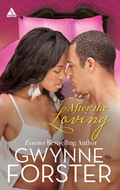Kitap dosya olarak indirilemez ancak uygulamamız üzerinden veya online olarak web sitemizden okunabilir.
Kitabı oku: «Last Chance at Love»
How Much Will She Risk For Love?
Fired from her prestigious job, journalist Allison Wakefield is now working for a tabloid newspaper, and she’s desperate to find a way to get her career back on track. Her new assignment, an explosive story involving mysterious bestselling author Jacob Covington, could be the answer. When Allison first encounters the author while visiting her aunt’s home on Idlewild Lake in Michigan, she realizes that Jacob is one subject she wouldn’t mind getting to know more intimately.…
But as they work side by side during Jacob’s book tour, Allison finds herself falling in love—and in a dilemma about what to do. The exposé is her ticket to success, but revealing the truth about Jacob’s past as a State Department undercover operative could jeopardize his career—and destroy a summer romance that holds the promise of a lifetime of happiness.
Last Chance at Love
Essence Bestselling Author
Gwynne Forster
MILLS & BOON
Before you start reading, why not sign up?
Thank you for downloading this Mills & Boon book. If you want to hear about exclusive discounts, special offers and competitions, sign up to our email newsletter today!
Or simply visit
Mills & Boon emails are completely free to receive and you can unsubscribe at any time via the link in any email we send you.
Acknowledgments
To the memory of my beloved husband, Professor George Forster Acsadi, and to my stepson, Peter, who, in spite of the tremendous demands of his own profession, supported and relieved me during the difficult time of my husband’s illness.
Contents
Chapter 1
Chapter 2
Chapter 3
Chapter 4
Chapter 5
Chapter 6
Chapter 7
Chapter 8
Chapter 9
Chapter 10
Chapter 11
Chapter 12
Chapter 1
“I want you to bring me a day in the life of Jacob Covington. He’s hot copy and I want your story to sizzle.” It was an order, and Allison Wakefield knew that Bill Jenkins, editor of The Journal and her boss, meant what he said. The Journal was known for its titillating accounts of the lives of celebrities.
“You said you wanted a story on a typical day in his life. Are you telling me to dig into the man’s privacy, to snoop? I’m a reporter, Bill, not a private eye, and I’m not interested in digging up anybody’s skeletons.” She’d heard that careers were destroyed hourly in Washington, D.C., and after her own experience, she didn’t doubt it. She brushed her long brown fingers back and forth beneath her chin and straightened her shoulders.
“I can’t stoop to that, Bill. I won’t.”
He lifted his shoulders in what appeared to be a careless shrug. “You said you didn’t want any more assignments on the wives of visiting dignitaries; you wanted hard news. Well, this is your chance. You’re after a story, and whatever you find had better go in it.” He paused, allowing a grin to slide over his face. “But if you’re chicken...” He let the thought dangle, but she understood what he didn’t say.
“Refusing to muckrake is not the same as being cowardly.” She knew she should hold her tongue, because she didn’t want to leave The Journal until she had another job.
Oblivious to the implied insult, his gaze swept over her. “A reporter has to be tough, Allison. So get used to it. If you don’t, the job’s not for you. Bring me the story.”
Allison turned away from her editor without thanking him for the chance of a lifetime. She collected her briefcase and pocketbook from her office several doors away and walked out of the building. Pausing in front of the eight-story structure at Fourteenth and H Streets, N.W., Washington, D.C., she breathed deeply of the warm, late June air. She hadn’t regained her status as a top reporter, but she still had her soul. Maybe she should have shown some gratitude, but why thank him for the double-edged gift when she knew it could be her undoing?
Jacob Covington had an impeccable reputation, or at least that was the opinion of other reporters who had interviewed him since he’d become a bestselling author. Cut him to pieces? She knew her uneasiness was well founded; Bill Jenkins kept The Journal afloat with scandal, searing his subjects, and if she let him, he’d treat this story no differently; he wanted the dirt. Muckraking was what he expected, and she’d need all of her wits to circumvent him. Top-of-the-line editors didn’t hire reporters who built their reputations on sleazy copy, and she wanted another chance at working for one of the best newspapers. But she couldn’t do that until she erased that blot from her record. She meant to show her detractors that she could reestablish herself as a journalist, and she wouldn’t trash Jacob Covington’s reputation to do it.
* * *
Warren Jacob “Jake” Covington paused in front of his town house near the Ellington School of the Arts in Georgetown and took a deep breath of warm, dry, early morning air, appreciating the unusually low humidity for the nation’s capital. Returning from the steaming tropics, the type of climate he least liked, he walked into his house and dropped his luggage at the closet door in his bedroom. After hanging up his jacket and kicking off his shoes, he stretched out on his bed and gloried in the feel of his own hard mattress under his back.
He had just completed his first trip for the department in four years, and the experience increased his appreciation for his current job as the department’s chief policy analyst. He wondered how he ever thought of his former job as an undercover agent as exciting and fascinating. He wanted no more of it.
An hour later, at the beginning of the working day, he reached for the phone on his night table and dialed his chief. “I got home an hour ago,” he said. As a policy, he didn’t identify himself over the phone. “We can’t expect success with the present strategy. I’ll have to come up with a better plan. I’ve got some ideas.”
“All right. Glad you’re back,” the chief said. “Get some rest and check in with me tomorrow morning.”
Jake stretched out again and grasped at sleep, only to have it elude him. As always, hours passed while he tried to climb down from the emotional high that consumed him when he was on a department mission. Long before he changed assignments, he had begun to tire of the ever-present danger and to want a home and family, something that he couldn’t contemplate as long as he held that post.
“We don’t have anyone else who can do this as well as you can and get back here safely,” his chief had said, trying as usual to inveigle him back into his former job. Well, if he got caught or died, they’d find someone else; he wasn’t indispensable. He had paid his dues, and he was out, a fact of which he intended to remind the chief as soon as he saw him.
* * *
Allison had never feared an assignment; indeed, the prospect of digging into a topic or an individual and finding something new and interesting always excited her. But she hadn’t worked for a newspaper that touted the sensational or for a boss who reveled in it.
Roaming around her small town house in Alexandria, she considered giving her boss an ultimatum: take her off that assignment or accept her resignation. But until Bill Jenkins hired her a month earlier, she hadn’t worked in eighteen months, had lived off her now-depleted savings.
I’ll write the story, but I won’t scandalize the man, and I won’t cover up for him, either. That’s a lesson I don’t have to learn again.
The muffled sound of the telephone interrupted her musings. “Hello? Auntie! How are you?”
“Lazy. I just caught a huge striped bass, and that set me to thinking about you. Fishing’s real good right now. You ought to come up here for a few days. It ought to be nice this weekend.”
Allison thought for a second. “You know...that’s not a bad idea. I’ll be starting a new assignment in a few days, and it wouldn’t hurt to rest up. I’ll fly to Reed City, pick up a rental car, and get to Idlewild around eight Friday evening.”
At exactly seven-thirty in the evening, Allison’s rented Toyota stopped in front of her aunt’s house, a yellow frame structure built in the 1920s, but renovated and well preserved. Frances Upshaw, tall and regal at eighty, rushed off the front porch to greet her niece who, along with Allison’s brother, Sydney, constituted the total of the family members that she cared about. She made it a point to tell her friends that the other members of her family were “too supercilious” for her taste.
“We’ve got another hour before dark,” she told Allison. “You’re just in time for us to get our supper. Mr. Hawks passed here a few minutes ago with a good dozen catfish and pike. They must be jumping.”
“Okay,” Allison said, hugging her aunt. “Let me put on some sneakers. I have to wear leather soles when I drive.”
She followed her aunt to the northern end of Little Idlewild Lake, baited her hook, and cast as far as she could.
“I’m getting rusty at this, Auntie.”
“No such thing. Child, I’ve been rusty for years, but not when I’m fishing.” Her laugh emphasized the insinuation. “When are you and Sydney going to settle down?”
Here it comes, she thought. “We’re settled, Auntie.”
“You know what I mean. Find yourself a— Oops! Will you look at what I got?” She reeled in a pike of about four pounds, the gleam of her white teeth expressing her pleasure as she put the fish in her basket. In less than half an hour, they had three fish each, enough for the weekend.
Around seven the next morning, Allison got her copy of Flying High, a folding chair, a big straw hat and dark glasses, and headed for the beach. As she sat facing Idlewild Lake and enjoying the crisp morning breeze, she thrilled at the thought that she could be sitting in the same spot where Ethel Waters, Duke Ellington, Louis Armstrong, Count Basie, or W.E.B. Du Bois once reclined. In its heyday, Idlewild, known as Black Eden, was famous as a black resort area, the first in the Midwest, attracting the most prominent black entertainers and scores of black intellectuals seeking a place to unwind.
Allison had often wondered how such a charming place with its winding roads, virgin forests, and beautiful lakes could have fallen into decline. She’d heard that integration made it redundant. She dug her bare toes into the powdered sand, leaned back, and opened her book. She liked being there alone when the birds chirped in the trees, a few people sailed on the lake, and a kind of peace flowed around her.
At the sound of a bird singing, she twisted around in the hope of getting a glimpse of it and gasped. Who was that giant of a man with a mouthwatering body rising from the lake like an amphibious Adonis, clad in only the tiniest of swimsuits? As he neared her, she lowered her glasses for a better look and could see the droplets of lake water on his flesh. Long, beautiful legs, tapered waist. Openly, she ogled the man, happy to acknowledge that example of God’s perfect handiwork. He didn’t glance her way, and she had never been happier to be ignored.
She returned her attention to her book, but the hero of Flying High took on the image of the handsome stranger, teasing and mocking her on every page. She closed the book and wondered about the identity of that spiritlike Adonis. Too bad, she would probably never see him again. Besides, he was probably married.
“Aunt Frances,” she said, “I saw a really tall man, maybe six feet five or six, on the beach. He had a tan complexion and black silky hair. I’d say he’s African-American with some Native American ancestors, and a knockout.”
“Well, well, hit you where you felt it, did he? Sorry, but he doesn’t live here in Idlewild. Must be a tourist. Why don’t you stay for the week? You might see him again.”
“Believe me, I’m tempted, but if I do that I’ll probably lose my job, and you know how long I’ve been trying to get one. I have to leave here Sunday noon.”
Frances rinsed her cup and saucer and rubbed her sides to dry her hands. “I’ll keep an eye out for him, and you know I’ll walk right up to him and ask him about himself. When you get to be my age, you can get away with anything.”
* * *
On Monday morning, Allison telephoned Jacob Covington. The deep baritone voice invited her to leave a message but, struck by the beauty of his voice, she merely stared at the receiver. Recovering quickly, she said, “Mr. Covington, this is Allison Wakefield of The Journal. My editor says you’ve agreed to give us a story. Please call me at your convenience.” She gave her phone number, hung up, and pondered her next move. Later, checking The Journal’s calendar of events for a potential story, as she regularly did, she noted Covington’s scheduled lecture that night at Howard University’s Andrew Rankin Chapel. She’d be there.
* * *
Allison took an aisle seat on the first row and nearly sprang out of it when Jacob Covington strode to the rostrum. Her awareness of him as a man surprised and disconcerted her, as her gaze caught the big giant of a man, who looked directly at her with long-lashed hazel eyes. With so little space separating them, he had to see that a glance at him had left her disoriented, so that she responded to him as surely as flowers rise to greet the sun. At the end of his lecture, she hardly recalled the gist of his talk, so intent had she been on concealing her feminine reaction. She stood in line for an opportunity to speak with him and stared in disbelief when he looked beyond those closest to him in the line and let his gaze linger on her. Common sense told her that she should tell Bill Jenkins to give the assignment to another reporter.
“Hello.” The deep, sonorous voice curled around her, and the hazel eyes that punctuated the elegance of his rich, brown face seemed to look into her soul. Without thinking, she extended her hand. And he took it. Nobody had to tell her that, at that moment, she dealt with fate.
“Hello, Mr. Covington.” She managed to keep her tone cool. “I enjoyed your talk, but I have a business reason for wanting to meet you.”
His left eyebrow arched. Then he winked, bewitching her. “What kind of business?”
She handed him her card. “I’m the reporter Mr. Jenkins assigned for The Journal’s story on you.”
He looked at the card, then at her. “Your name’s not familiar.”
“I hope you don’t have a case of gender insensitivity.”
That wink, again. “Hardly. My concern is for competence and experience.”
With so much at stake, she couldn’t afford to show vexation. “And you can look at a reporter and know whether she’s competent?”
“There are still a lot of people behind you. If you’ll step aside, we can settle this later.” Settle it? How? This was her chance, and if he had thoughts of refusing her interviews, he could forget it. Right then, she had the upper hand, because he didn’t need bad press just as he was about to begin a national book tour.
“Suppose we walk out together,” he suggested when the last of his audience had left. “I agreed to be interviewed reluctantly, because my publisher thinks a story in The Journal will widen my readership, but I have to tell you I have misgivings. What kind of story are you planning?”
She noticed that he shortened his steps to accommodate her and wondered at his height. “A day in the life of Jacob Covington. What do you say?”
He didn’t miss a beat. “A working day in the life of Jacob Covington is what you’ll get. My private life is my business, so if you’ve got plans to start on the day of my birth, and not miss a second of my existence until the day before the story goes to press, forget about it.”
As they reached the door, she stopped walking and looked up at him. “I can write the story without a word from you, or I can do the decent, professional thing and interview you. I’m giving my boss a story one way or the other.”
His hazel eyes took on a glaze, and his stare might well have been a laser, slicing through her. “Has some of Bill Jenkins rubbed off on you? A story at any cost? Damn the individual; the public has a right to know?”
She told herself to remember the stakes. “Let’s start over, Mr. Covington. This assignment is important to me, and I’m sure you know that. Give me your ground rules, and I’ll try to follow them.”
He breathed deeply, as though resigned. “All right, Ms. Wakefield, nine to five, Monday through Friday, and whenever I’m lecturing, signing books, or being interviewed on radio or TV. At all other times I’m a private citizen. Okay?”
“Fair enough. Are you married?” He seemed taken aback at the abruptness of the question, and she could have kicked herself for having asked it in that fashion.
He winked again, and her heartbeat accelerated. “No. Was that question for the interview or personal use?”
She wished he wouldn’t look at her so intently, because she couldn’t use the pleasant weather to explain the moisture that matted her forehead. Self-consciously, she lowered her eyelids, annoyed at her warm feminine response to him.
He’s just a man, Allison, she admonished herself, and recovered her equilibrium. “I know you’re thirty-five—the next logical question is marital status.”
He inclined his head slightly and quirked his brow, verifying her suspicion that he didn’t believe her, but she appreciated that he softened his voice and manner as if to put her at ease. “This isn’t a convenient time for your interview. I’m about to leave on the first leg of my national tour.”
“Why can’t I travel with you?”
“You couldn’t be serious, Ms. Wakefield. I don’t want the press chronicling my every breath.”
In her exasperation, she permitted herself a withering stare, but realizing that she might provoke him, she immediately changed her demeanor. “Mr. Covington, I am not asking to spend every minute with you, only for the chance to carry out my assignment as best I can.”
After seeming to weigh the pros and cons, he said, with obvious reluctance, “All right, if you can manage to stay out of the way.”
Boldly, she met his eyes straight on and tried to ignore the bouncing of her heart in her chest. “Would you please try to be less patronizing. I can’t observe you if I have to stay out of sight. I’m a professional, and I know how to do my job. It wouldn’t hurt you to remember that.”
He ran his fingers through the thick, silky black hair that belied his African heritage and told of his Seneca ancestors—traits that had once enhanced his value as an undercover agent; one couldn’t be certain of his racial identity.
“All right,” he said and grimaced, “but if it doesn’t work, we’ll have to drop it. I’ll let you know when I’m ready to leave.” At the bottom of the hill, he asked, “Are you driving, or should I help you get a cab? They seldom cruise on this part of Georgia Avenue at night.”
“I’m driving.”
“Then you can give me a lift?”
* * *
She stopped the car in front of his town house in an upscale section of Georgetown and turned toward him. “This is a lovely neighborhood,” she said, reluctant to voice the words that rested uneasily in her thoughts. He nodded and reached for the door handle. “Mind if I ask...” He stiffened, and she decided not to coat it. “You have a habit...I mean... Why do you wink at me?”
“What? Oh! I didn’t realize I’d done that. It isn’t something I control; it’s involuntary. I... It does whatever it pleases. Thanks for the lift. Good night.” Puzzled at his sudden diffidence, the man filled her with wonder as she drove across the Williams Bridge and took the Shirley Memorial Highway to Alexandria and her small, two-story frame house near Bren Mar Park.
* * *
Jake thought he’d been around so many indescribably beautiful women that one long-legged black woman with big eyes the color of pinecones and the shape of almonds and a come-to-me expression couldn’t knock him off balance. But like a freight train charging through the night, Allison Wakefield had done exactly that. For what other reason would he have given her permission to follow him around and record his every gesture? And why else would the damned wink have returned? That alone was positive proof that she’d gotten to him. The wink hadn’t bothered him since he overcame a short, feverish attachment to Henrietta Beech. He distrusted reporters and for good reason; the eagerness of one to expose his former State Department activities had nearly cost him his life. Covering up the incident and guaranteeing his protection for some months afterward had cost the government a bundle. And The Journal! Did he dare risk it? He secured the front door and leaned against it for a full twenty minutes, musing on the evening’s surprises. Suddenly, he strode into his office and lifted the phone receiver. He stopped. Why did he want to telephone Allison Wakefield? Nonplussed, he pressed the fingers of his left hand first to his right cheek, then to his temples, and closed his eyes. What the devil was going on?
Annoyed with himself for letting Allison get to him, Jake paced around in his bedroom, stopped, and swore; he needed a haircut. Nobody and nothing could have persuaded him to get one in that bastion of intrigue he’d just left, with a terrorist lurking in every other house, every store, and around any corner. In that environment, he wouldn’t be fool enough to sit in a barber’s chair and expose his throat to a razor. The ring of the phone jarred him. Wondering who would call him at half past eleven at night, he answered it.
“Covington.”
“Come in early tomorrow. I’ve got something for you. Can you make it in by eight o’clock?”
Jake held the receiver at arm’s length and glared at it. “You couldn’t wait until tomorrow morning to tell me? Did you forget I’m on a year’s leave of absence, chief, and that I just got back from a mission this morning?”
“No, I didn’t forget. I need your savvy. I want you to check these plans because if anything goes wrong on this job, Congress will have my head.”
“Eight o’clock,” Jake said and hung up. Right then, he hardly cared whose head came off. He hadn’t had a decent night’s sleep in ten days, and who knew when he’d get another one if he had to worry about keeping Allison Wakefield out of his business?
* * *
Three days later, his job for the chief completed, he prepared for his first book-signing tour.
Rested, after a sound night’s sleep, Jake pulled himself out of bed, got a cup of black coffee, and tried to think. Considering the way he had responded to Allison Wakefield, all the way to the pit of his gut, he’d probably relax with her, slip up, and reveal more than he should. And she was bound to get suspicious if he periodically interrupted his book tour and disappeared for days at a time, as he would if the chief called on him. Any good journalist would want to know why he disappeared and where he went. He promised himself he’d get out of that commitment.
“I’ve rethought it,” he told Allison when he called her at her office later that morning, “and I’d prefer not to be encumbered on this tour. It’ll be tiring enough without having a reporter around to record every breath I take.”
He’d disappointed her, and he couldn’t help it, but when he’d looked down at the audience and had seen her there with her right hand at her throat and her lips a little apart, he hadn’t known what hit him. In his thirty-five years, he didn’t remember having had such a powerful reaction to a woman. He’d gotten through that lecture, though he didn’t remember how. Then she’d walked up to him and held out her hand, and for a moment he’d thought he’d conjured up a vision.
The extent of her frustration came through when she spoke. “If I can’t tour with you,” she bargained in a voice that lacked her previous toughness, “could you give me a list of people to interview who you’d trust to tell me the truth?”
“Your generosity astonishes me,” he said, clearly baffled. “I don’t get it.”
“I wouldn’t worry about that,” she replied, her tone more confident. “I won’t have any trouble finding people who’ll do you in. If I put an ad in the paper, they’ll come running.”
“That’s blackmail, woman.”
“Tut-tut. Don’t be so harsh. There’s more than one way to ride a horse; you know that. So what do you say? Do I tour with you, or don’t I?”
She sounded tough, and she might be, but something about her reached him, and he didn’t want to hurt her. She inspired in him exactly the opposite response. But he had to protect himself from damage, too. And he didn’t doubt that, if she dug into his private life, she could twist what she found sufficiently to torpedo his dreams of becoming scholar-in-residence at his alma mater.
“Are you equating me with a horse?” he chided. “Your choice of metaphors intrigues me.”
“I didn’t mean... Well, n-no.”
He couldn’t resist a dig. “Don’t apologize, Allison. When you ride, be considerate enough to make it enjoyable.” Oh, if phone lines had mirrors! From her long silence, he knew she’d gone slightly out of joint. Still, he couldn’t help needling her. “It isn’t always what we hear that causes trouble, but how we interpret it. You get my point, I hope.”
“If you’re trying to convince me that six weeks of your company will be unpleasant, don’t squander your energy,” she replied. “And off-color innuendos are wasted on me.”
“Off-color innuendos? I didn’t insinuate anything; I meant what I said. Plain and simple.”
“Like your wink?”
“Like your handshake, lady. Meaningful.” She could hold her own, he saw, as he waited for her reply.
“When do we leave?”
If he hadn’t spent the last thirty minutes talking with her, his answer probably would have been, “We don’t.” But he suspected she’d be good company. And face it, he told himself, you want to know whether that clap of thunder you heard and the lightning fire that roared through you when you first saw her signaled the real thing.
“All right. I’ll give it a shot,” he told her, “but please do your homework. I don’t mind telling you that I’ve had enough of fledgling reporters and their inept questions.”
“This is your first book, but I’ve worked as a reporter for six years. Which one of us is a fledgling?”
A warm flush spread through him, and he couldn’t help laughing; a woman who could hold her own with him was to be prized. And encouraged. “Touché. My publicist will give you my schedule for the next six weeks.” He hung up, and his smile faded. He’d have to make certain that she didn’t tail him on Friday and Saturday nights.
* * *
Jake couldn’t decide whether to rent a car, drive out to Rock Creek Park and spend a couple of hours horseback riding, or call a buddy for a game of tennis. He hadn’t had any useful exercise in ten days. He needed a good workout. “Dunc was always good for an early morning set or two,” he said to himself and telephoned his friend, a freelance journalist who worked at home.
“Jake here. How’s it going, buddy?” he asked Duncan Banks when his friend answered the phone.
“How am I? Man, I need a vacation. I just finished a piece on undertaker scams, and damned near wound up the victim of one of ’em myself. Don’t tell me you want a game. I just told my wife I needed some exercise.”
“I can be ready for a couple of sets in half an hour. How are Justine and Tonya?”
“Still spicing my life. I’ll pick you up in forty-five minutes.”
* * *
“You look as if you’ve been hanging out on a beach,” Duncan told Jake when he opened the door.
“Hardly,” Jake said. He didn’t discuss his work for the department, and especially not his trips, and Duncan never asked him where he’d been. However, Jake didn’t doubt that a news reporter of Duncan Banks’s stature had done his research, knew the answers, and kept his thoughts to himself.
“I hope you’re paid up with your club dues,” Jake told him, “because I forgot to pay mine.” He didn’t mention that the notice arrived while he was on a department mission.
“I forget sometimes, too,” Duncan said, “but they won’t throw us out.”
They practiced hitting the ball for several minutes, tossed a coin, and Duncan served first.
“Brother, that was one wicked lob you sent over here,” Duncan called to Jake after returning it for a point. After winning a set each during nearly two hours of play, they sat on a bench and helped themselves to the lemonade that Justine had made and sent in a cooler.
“You’ve been married to Justine how long now?”
“Two years. The happiest and the most productive of my life. I hardly remember who I was before I met Justine. Looking back—and I often do—I realize my first marriage was a sham.”
Jake stretched out his legs and leaned back against the bench. “Marriage is a risk any way you slice it.”
A frown slid over Duncan’s face. “Sure. And so is taking a shower. It’s simple, Jake; if you don’t gamble—I mean, take a chance—you can’t win. From the first time I looked at Justine, I was a changed man.”
Jake sat forward, remembering his reaction to Allison Wakefield. “You mean as soon as you laid eyes on her?”
“That’s just what I mean. Man, I did everything, told myself all kind of lies about how she wasn’t for me, even left my own house to stay at the lodge so I wouldn’t see her...trying to avoid the inevitable. I didn’t stand a chance.”
“Damn!” Jake sat back, put his hands in the pockets of his tennis shorts, and shook his head. “Man, I don’t like the sound of that.”
“Whoa! Wait a minute,” Duncan said, coloring his words with barely restrained laughter. “What’s her name?”
Ücretsiz ön izlemeyi tamamladınız.









